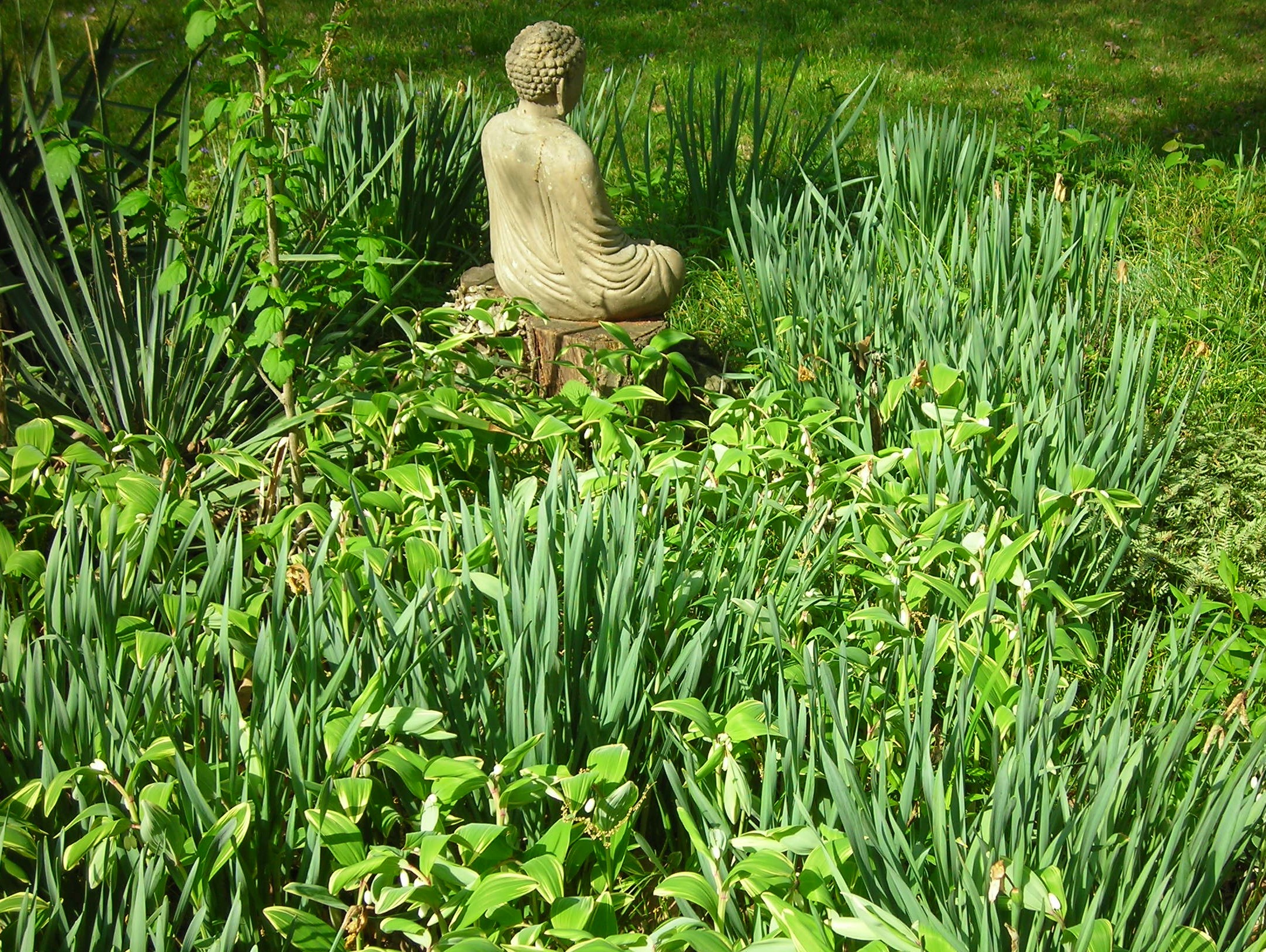Good morning!
After the rainy days we have now moistened soft greens all over. When we see plants, we are amazed at their rapid growth in harmony with the sun, air, and water.
When we sit in zazen (chan: jhâna: dhyâna), we become in free full function, in total harmony with universal truth, goodness, beauty, and holiness, like a heron in a snow field.
There are no ego, economy, or ecology problems. As we sit, we stop our karmas and are without delusion, craving, and anger, thus no meism, materialism, and militarism.
However, when we move, karmas start, and ego, economy, and ecology problems appear. When we have ego or self, we have other, with competition and conflict.
Ego wants to protect itself, so it builds eco (from Greek oikos: house), and starts economy (oikos-nomos: small private home norm) and ecological (oikos-logos: large public home truth) problems. It exploits and even exterminates others. This is our present problem.
Our sciences and technologies have advanced so much that we have been demanding our private economy and damaging our public ecology, digging up our source and root of life.
Due to excess ego problems we have been experiencing a large scale global economic meltdown. So, we now need our economic and ecological ethics.
Ego infatuation has built cities and civilizations (= urbanization) in a pyramidal power system with discrimination, exploitation, and extermination and with the help of the monetary system.
Money accumulates and collects more power and matter. Now it is buying our major modern institutions, nations, corporations, media, education, and religion.
The Occupy movement has pointed out that 1% or 0.001% exploit 99% or 99.999% — and much more when we count other species and generations.
Religions give us fundamental precepts and commandments to not kill, steal, lie, or have misconduct between men and women, generations, and genuses.
These four principles were given as directives by the Declaration toward a Global Ethic by the Parliament of World’s Religions in Chicago in 1993.*
Ecology is like the ocean, and economy is like foam or a bubble, so the Declaration should work in harmony with that. In the same way, ego should work in harmony with the ecology.
All phenomena, ego, ego-centric institutions, economy, and ecology, are all interdependent with all other phenomena in interrelations and impermanence, thus without self-substance or entity, i.e., fictitious (nations, etc.).**
Ego and economy, however, become blind and damage this wholly wholesome ecological life system. That’s why we need the new ethic described here for a new economy and ecology.
Anyone can find this truth in still and serene sitting, and can witness peace, harmony, and happiness. This is the holiest way of life in free and full function.
Unfortunately, not many people practice this, so we have a lot of economic and ecological problems. We need to bring this forward so that everyone can enjoy it.
The Buddha exemplified the awakened way with unconditioned peace with all always in wholly wholesome truth, peace, harmony, and happiness.***
4/15/12
Note:
*The Declaration toward a Global Ethic” by the Parliament of the World’s Religions, issued in Chicago in 1993, set out basic principles to be observed by all to have a wholly wholesome world in this perspective. It declares that there can be no new global order without a new global ethic, and it proclaims the universal fundamental truth that all beings exist in interdependence, interrelation, and relativity. Thus all beings are related and relative, no single one is alienated or absolute. Thus all humans must be treated equally and humanely. It prescribes four irrevocable directives as follows:
- Commitment to a Culture of Nonviolence and Respect for Life
- Commitment to a Culture of Solidarity and a Just Economic Order
- Commitment to a Culture of Tolerance and a Life of Truthfulness
- Commitment to a Culture of Equal Rights and Partnership between Men and Women
**Nations, corporations, media, education, and religions (five major modern institutional players) are impermanent and changeable in their characters (even against the original purposes), thus are fictitious.
***Unconditioned peace (nir-vâna:nib-bâna: ni-vâta, windless: unconditioned – by karmas: past, present physical, verbal, and mental actions/action results: habits) and unsurpassed awakening are both sides of a state.

